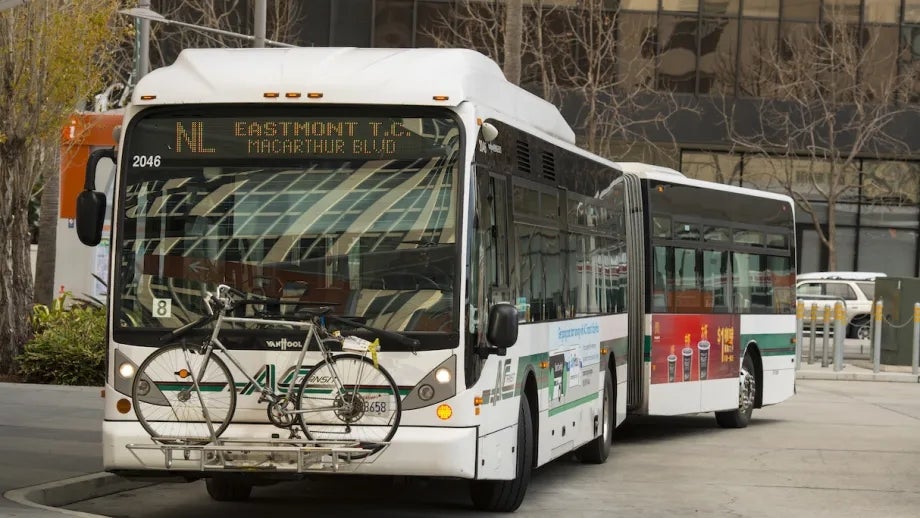Transit Capital Priorities
MTC’s Transit Capital Priorities process helps ensure that the limited federal transit dollars available go to projects that are essential.
There are more than 20 different transit agencies in the Bay Area. MTC’s Transit Capital Priorities process makes sure that available federal funding has the biggest impact on Bay Area residents. There are three main goals:
- Fund basic capital requirements
- Maintain reasonable fairness to all transit agencies
- Complement other MTC transit funding programs
A Wide Range of Investments
Transit agencies use the Transit Capital Priorities process to compete for funds used for a wide range of investments, including:
- Vehicle replacement or rehabilitation
- Rail system equipment replacement or rehabilitation
- Replacement or rehabilitation of ferry propulsion systems or other major ferry components
- Purchase or replacement of vehicle communications equipment
- Replacement of Clipper® fare collection equipment or other fare boxes
- Purchase and installation of emissions-reduction systems for diesel buses
- Safety projects
- Station and parking lot rehabilitation
Call for Projects: FY 2020-21 through FY 2024-25
Leveraging MTC Funds
The Transit Capital Priorities process complements several MTC funding programs, including the Core Capacity Challenge Grant program, which focuses on Muni, BART and AC Transit.
MTC uses the Transit Capital Priorities process to allocate federal funds through the:
- Federal Transit Administration’s Urbanized Area Formula — Section 5307
- State of Good Repair — Section 5337
- Bus and Bus Facilities — Section 5339
- Federal Surface Transportation Program
See more details about the Federal Transportation Administration grants.
MTC’s Transit Finance Working Group serves as the regional forum to discuss Transit Capital Priorities issues.
The Working Group consults with the Partnership Technical Advisory Committee, which in turn provides funding recommendations to MTC’s Programming and Allocations Committee.

